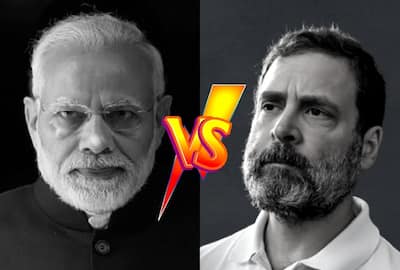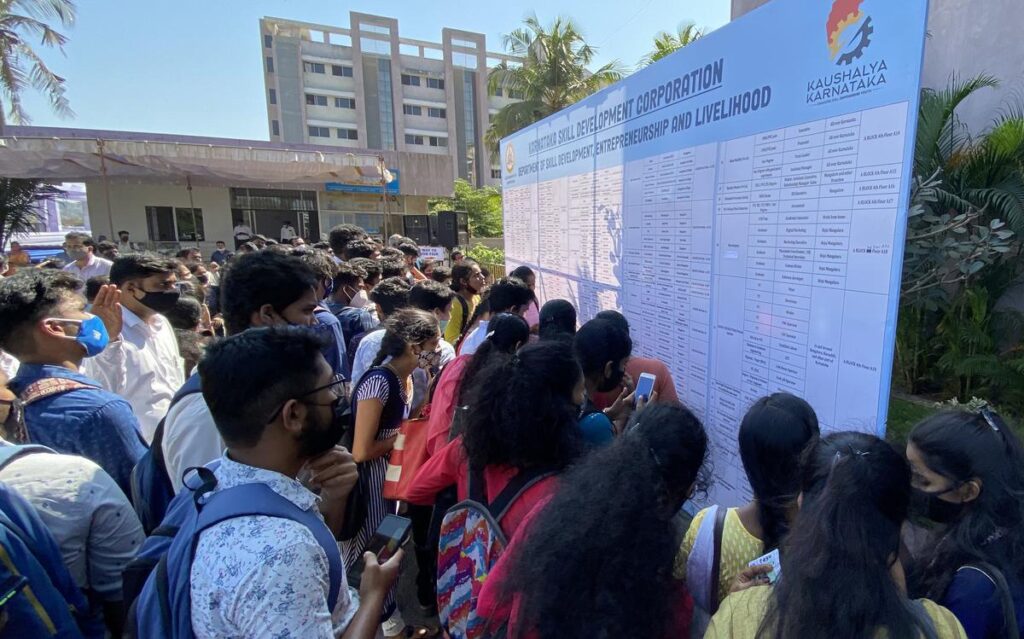The Great Surprise, India Voted, The Results Are Out, Was It The Fear Of ‘Authoritarianism’ Or The Need For Immediate Action On Growing Unemployment Rate, Inflation And Growing Inequality Of Income?

Defying exit polls, opposition parties stun the BJP in vital states, resetting India’s political arena.
Indian Prime Minister Narendra Modi’s Bharatiya Janata Party (BJP) lost its national majority after suffering significant defeats in crucial states, marking a dramatic shift in the political arena it has dominated for the past decade.
The BJP still emerged as the single-largest party in the Lok Sabha, India’s lower house of parliament.
However, as India’s election authorities counted 640 million votes within a day on Tuesday, following a six-week-long election, the BJP fell short of its 2014 and 2019 performances.
Unlike those elections, where the BJP secured clear majorities in a 543-seat house, it ended up with only 240 seats this time. The majority mark is 272 seats.
In contrast, the opposition INDIA alliance, led by the Congress party, won 223 seats, significantly exceeding the predictions of exit polls released on June 1 after the final phase of India’s election cycle; the exit polls had forecasted that the BJP would surpass its 2019 tally of 303 seats.
Modi and his party are still likely to form India’s next government but will be reliant on a group of allies to cross the 272-seat threshold. The BJP, along with its allies in the National Democratic Alliance (NDA), secured 283 seats.
 The Jaw-dropper
The Jaw-dropper
The 2024 election outcome is a more significant upset than that of 2004.
The BJP’s attempt to secure a third consecutive term has been hindered by its failure to achieve a clear majority independently. This inability to match the 2014 and 2019 mandates, let alone exceed them, may necessitate a more humble approach from Narendra Modi if he takes office at the head of the NDA coalition in the coming days.
With over 30 Lok Sabha seats in its possession, the ‘winner’ is not just in third position but also managed to snatch victory from the BJP. If the Samajwadi Party had not effectively forged its alliance with Congress, leading them to nearly 40 seats, the BJP might have secured at least a slim majority, but that did not happen!
How will this verdict affect national politics?
This election will undoubtedly influence the nature of national politics and governance at the Centre. Despite being a setback for the BJP—given its ambitious target of 370 seats for itself and over 400 with allies—there are still positive aspects for the party.
The reduction in the number of seats won by the BJP is largely due to the opposition’s effective dissemination of the belief that Modi aimed for these high targets to secure a two-thirds majority, allowing for potential constitutional amendments.
Perhaps this notion alarmed the public, as even the mere suggestion of altering India’s foundational text resonated deeply despite general unfamiliarity with the Constitution.
At the same time, the opposition worked and executed a focused campaign that starkly contrasted with the 2019 elections. They enhanced their social media presence, swiftly counterattacked, and prevented the BJP from controlling the narrative.
 Additionally, they spotlighted issues such as unemployment and inflation, accusing the BJP of fostering social and religious discord and practising crony capitalism.
Additionally, they spotlighted issues such as unemployment and inflation, accusing the BJP of fostering social and religious discord and practising crony capitalism.
Historically, large majorities in parliamentary democracies often lead to weakened consensual politics and the rise of authoritarianism.
However, will a coalition government at the center hurt India’s growth?
This is a critical question; governance does not inherently suffer under coalition governments.
For instance, India’s economic liberalization began in 1991 when the ruling party was in the minority in the Lok Sabha.
P. Chidambaram presented India’s ‘dream budget’ during the fragile tenure of the United Front government, which relied on Congress for survival.
 Modi 3.0, The Need For Change
Modi 3.0, The Need For Change
Modi, having not previously needed to demonstrate his consultative abilities, will now need to adapt to a more decentralized system of governance.
Despite being the world’s fastest-growing major economy, voters indicated that high inflation and unemployment were primary concerns leading up to the election.
The BJP’s campaign slogan, “Abki baar, 400 paar (This time, more than 400),” set ambitious targets of 400 seats for its alliance and 370 seats for the BJP itself.
That pitch carried a “tone of overconfidence,” said Nilanjan Mukhopadhyay, a Modi biographer, at a time when many in the Indian public were grappling with the realities of soaring prices, joblessness, and income inequality so severe it is now worse than during British colonial rule.
Again, the consecration of the Ram Temple, overseen by Modi, was a central theme in the BJP’s campaign to mobilize Hindu voters, but it seems it did not entirely work the way imagined.
The party also lost the key seat of Amethi, where federal minister Smriti Irani is facing defeat.
Irani had achieved a remarkable victory over Rahul Gandhi, the scion of the Gandhi family, by 55,000 votes in 2019. This year, Gandhi contested from the neighbouring Rae Bareli constituency and won by a margin more than twice the size of Modi’s victory in Varanasi, also in Uttar Pradesh.
This election ultimately became another referendum on Modi. While it may have given the prime minister a numerical win, given the high expectations he sets for himself, it could be considered a draw.
A referendum ( pl.: referendums or, less commonly, referenda) is a direct vote by the electorate on a proposal, law, or political issue. This is in contrast to an issue being voted on by a representative. The referendum may result in the adoption of a new policy or specific law, or it may be only advisory.
 What’s next for the BJP?
What’s next for the BJP?
Once the immediate dust settles over these results, the BJP will need to introspect, and the dominant duo of Modi and Amit Shah, India’s home minister and widely seen as the prime minister’s deputy, will face tougher questions.
“There will be questions on envisioning Modi as a leader of the alliance, where he would have to listen to non-BJP leaders much more,” said Shastri of the CSDS.
- Over the past decade under a majority BJP government led by Modi, India has declined on several democratic indices amid accusations of a crackdown on dissent, political opposition, and the media.
- Modi did not hold any press conferences in the last decade as prime minister.
With coalition partners to keep the BJP in check, there “will be breathing space for Indian civil society and the government’s critics,” said Mukhopadhyay, the biographer.
Talk of ‘New India’ will likely be shelved, and a ‘new’ Modi will need to emerge; it remains to be seen if Modi can reinvent himself again!




